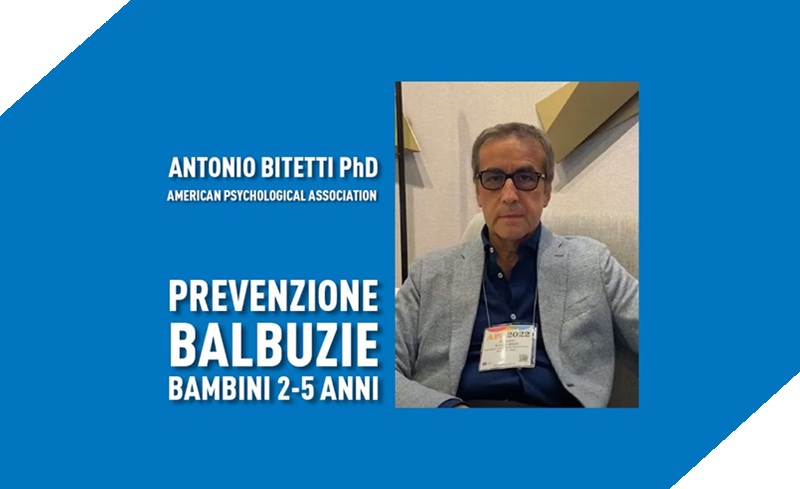The stutterer constantly experiences the problem of saying, not saying, there is not that spontaneity typical of the normoloquent, that is, of someone who speaks without any verbal hitches. The treatment of stuttering in adults requires an Integrated Approach to the problem.
For a long time, the problem of stuttering has been ironized and in very distant times there was a tendency to associate the difficulty of speaking with an intellectual delay. The fluency of language is hindered, but not the intelligence and the ability to complete one’s own projects. On a cognitive level, however, the stutterer is constantly influenced by a type of thinking, where the fundamental element is the control of the word1.
Stuttering in Adults: the result of wrong methods
Usually, the adult stutterer has already done speech therapy cycles and courses on stuttering as a child, based mainly on phonation or similar techniques, accompanied by breathing exercises. However, few adult stutterers have addressed the deeper aspects of their stuttering and find themselves with an unchanged, or slightly improved, situation, at least in terms of language.
In fact, it often happens that after several cycles of re-education sessions with treatment methods based on improvised intuitions, the adult stutterer often returns to his old habits.
Fear of Stuttering: between states of anxiety and desire to relate
The fear of stuttering leads to a constant focus on how to speak, rather than focusing on realistic and logical factors, that is, what you want to say. With such a sequence of thoughts it is easy to fall into a state of anxiety that compromises speech itself. The normal speaker, on the contrary, does not control his words, they are fluid, he is more attentive to what he says, than to how.
Through the Integrated Approach, his method of treating stuttering, Dr. Antonio Bitetti addresses the difficulties of the adult stutterer from different points of view, focusing especially on relational dynamics.
These dynamics explain one of the character traits of the adult stutterer: passivity. It is understood as a subtle fear on the part of the stutterer to bring out all the underlying energy that he has always held back. A passivity that leads him to give up various social and relational activities. Not only that, this holding back of energy often has repercussions on the emotional sphere, and it is easy to find stuttering adults who are emotionally isolated. The patient brings with him many painful experiences, made of sacrifices, humiliations and often imbued with feelings of social isolation, loneliness and even anger.
This is why the stuttering adult is constantly looking for interpersonal relationships with other stutterers. He feels more reassured by his peers, he feels protected and not judged. This explains the continuous search for methods of treating stuttering that are based on support techniques, using the group as a basis for therapeutic work. However, this does not mean that stuttering is actually being treated, but rather that the symptomatic aspect is simply being treated. Indeed, it is important to emphasize that through interacting with other people affected by the same problem, the patient receives a pleasant sensation, as if they were actually making progress, but the truth is that the fear of speaking in front of others is inhibited by the fact that others share the same disorder as the speaker. Therefore, it is not an effective resolution of the problem.
The emotional dynamics behind adult stuttering
Stuttering therapy in adults opens up a fascinating world of emotional dynamics in the stutterer.
The stutterer constantly experiences the problem of saying, not saying, there is no spontaneity typical of the normal speaker, that is, of someone who speaks without any verbal hitches.
The stutterer finds it more difficult when he has to verbalize thoughts with high emotional content, or when he has to present a topic in front of several people, especially if they are considered authoritative, or that he considers such. This suggests the presence of complex psychological mechanisms, which have fueled the scientific literature on the etiopathogenesis of this disorder.
In general case studies, it is found that almost all stutterers stutter in the presence of strangers, or those considered important. The example of the adult who has to take a job interview, or who has to present a report in front of a multitude of people, is emblematic. On a relational level, the stutterer feels like a prisoner of his disorder and experiences social relationships with difficulty and suffering.
For example, he fears verbal exposure in any group relationship, feels uncomfortable and embarrassed if he is asked to repeat a topic already exposed, and experiences his difficult moment on the phone, which becomes a painful experience and even a real block. This does not mean that all stutterers have social limitations, it depends on the severity and importance that the stutterer gives to his disorder.
In fact, a fundamental element is given by the negative perception of oneself, and by the feared negative judgment by others, which can increase the level of anxiety, and thus affect normal social relationships. This brief exposition of the difficulties that the adult stutterer experiences, leads to reflections on the psychic dynamism underlying the disorder.
How to Stop Stuttering Forever: Integrated Approach
A true cure for adult stuttering must include a significant restructuring of the stutterer’s personality. The Integrated Approach in adults with stuttering addresses the deepest elements of stuttering.
It is not a psychoanalytic therapy and it is not a cognitive behavioral therapy in the most classic definition. It is a comprehensive approach to stuttering, the result of over twenty years of studies and research in the specific sector.

For all adult stutterers who have entrusted themselves to the care of Dr. Bitetti, after having undergone therapies in other fields, the Integrated Approach turns out to be a complete therapy. Complete, because it does not leave out any aspect, it goes in the right direction to offer the adult stutterer all the tools to bring out his true personality.
The purpose of the therapy of Dr. Bitetti, a true pioneer in this sector, is to give the stutterer a deep knowledge of his potential, which should not be controlled and held back by many underlying fears. It aims to make the adult stutterer grasp his true dimension of character strength.
A strong person does not stutter, does not hesitate, and this is the purpose of the treatment, to increase the level of underlying energy, to the benefit of a relationship and of a strong and decisive language.
[1] Dr. Antonio Bitetti, Emotions, Behavior and Control, IEB Editore, Milan, 2016





